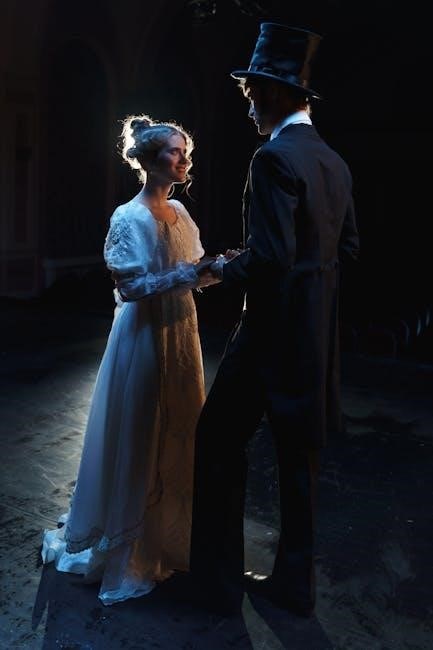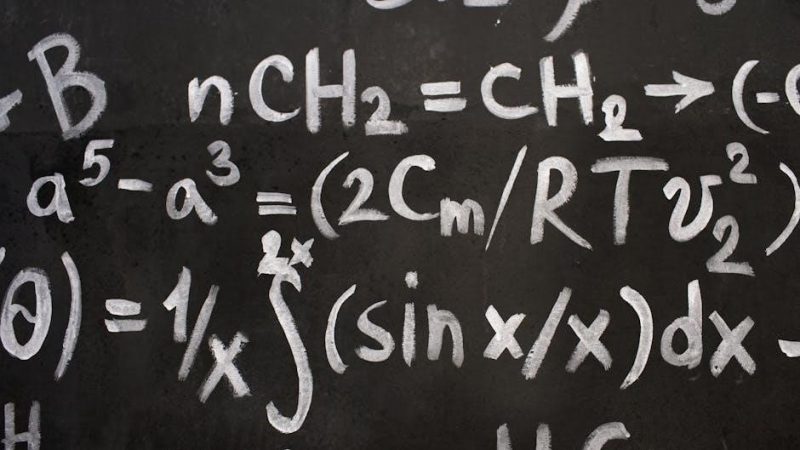the crucible pdf act 3

Act 3 of The Crucible unfolds in a tense courtroom‚ where John Proctor confronts the court‚ revealing his affair with Abigail and challenging her accusations. This act marks a pivotal moment‚ exploring themes of guilt‚ redemption‚ and hysteria as the witch trials escalate‚ leading to devastating consequences for the characters involved.
1.1. Setting the Scene: The Courtroom and Its Atmosphere
Act 3 of The Crucible takes place in a tense‚ formal courtroom adjacent to the Salem meeting house; The atmosphere is heavy with fear and hysteria‚ as the witch trials reach their peak. Judge Danforth presides‚ exuding authority and a sense of unyielding justice. The courtroom is filled with villagers‚ creating an air of communal anxiety. The setting emphasizes the gravity of the proceedings‚ where accusations and confessions determine life or death. The rigid‚ oppressive environment reflects the moral and social chaos gripping Salem‚ heightening the drama and emotional tension.
1.2. Major Themes in Act 3: Guilt‚ Redemption‚ and Hysteria
Act 3 delves deeply into themes of guilt‚ redemption‚ and hysteria. John Proctor’s confession of adultery highlights his internal struggle with guilt‚ while his ultimate sacrifice embodies redemption. The courtroom becomes a symbol of mass hysteria‚ as fear and paranoia dominate the proceedings. Abigail’s manipulative accusations escalate the chaos‚ showcasing the destructive power of unchecked emotions. These themes intertwine to reveal the moral complexities of the characters and the societal breakdown in Salem‚ underscoring the devastating consequences of unchecked fear and false accusations.
Key Characters in Act 3
Act 3 focuses on John Proctor‚ Abigail Williams‚ and Mary Warren. Their actions drive the plot‚ revealing their moral struggles‚ manipulation‚ and ultimate betrayal‚ central to the act’s tension.
2.1. John Proctor: His Struggle and Sacrifice
John Proctor’s struggle in Act 3 is marked by his courageous yet doomed attempt to save his wife‚ Elizabeth‚ and expose Abigail’s deception. Confessing his adultery publicly‚ Proctor risks his reputation to reveal Abigail’s manipulation. Despite his efforts‚ the court dismisses his testimony‚ leading to his condemnation. His sacrifice underscores his integrity and commitment to truth‚ as he chooses to stand against injustice‚ even knowing it will cost him his life. Proctor’s actions highlight the destructive power of false accusations and the moral decay of the Salem community.
2.2. Abigail Williams: Manipulation and Accusations
Abigail Williams emerges as a master manipulator in Act 3‚ using her charm and false accusations to control the court. She accuses others of witchcraft to conceal her own misdeeds‚ such as dancing in the forest. Abigail’s influence over the other girls amplifies the hysteria‚ as they echo her claims. Her duplicity is evident when she denies Proctor’s revelations about their affair‚ further solidifying her power. Abigail’s manipulative tactics escalate the witch trials‚ leading to the condemnation of innocent individuals and highlighting her ruthless pursuit of revenge and self-preservation.
2.3. Mary Warren: Testimony and Betrayal
Mary Warren’s testimony in Act 3 is a turning point‚ as she initially testifies against Abigail‚ revealing that the girls fabricated their accusations. However‚ under pressure from Abigail and the court‚ Mary retracts her statement‚ accusing Proctor of witchcraft. Her betrayal stems from fear and the court’s intimidating atmosphere‚ leading to Proctor’s condemnation. Mary’s actions highlight the destructive power of fear and the manipulation of vulnerable individuals within the hysteria-driven society‚ ultimately contributing to the tragic outcome of the trials.

Major Events in Act 3
Act 3 of The Crucible features Proctor’s confession of adultery‚ Mary Warren’s testimony‚ and the court’s skeptical reaction‚ escalating tensions and setting the stage for tragic consequences.
3.1. Proctor’s Confession of Adultery
In a desperate attempt to save his wife Elizabeth and expose Abigail’s deceit‚ John Proctor publicly confesses his adultery with Abigail. This bold move‚ intended to undermine Abigail’s credibility‚ reveals the depth of his guilt and regret. However‚ the court‚ deeply entrenched in hysteria‚ views his confession as a sign of corruption rather than honesty. Proctor’s sacrifice of his reputation highlights his internal struggle for redemption and his commitment to truth‚ even as it seals his fate and intensifies the dramatic tension in Salem.
3.2. The Presentation of Evidence Against Abigail
John Proctor presents evidence to discredit Abigail‚ including a letter signed by 91 villagers attesting to Elizabeth’s good character. Mary Warren testifies that Abigail fabricated her claims‚ revealing the girls’ deceit. However‚ the court‚ deeply biased‚ dismisses their testimonies. Danforth accuses Proctor of plotting against the court‚ and Abigail counters with false accusations of witchcraft against him. This pivotal moment showcases the court’s unwillingness to accept truth‚ escalating the hysteria and solidifying Abigail’s manipulative grip on the proceedings. The evidence‚ though compelling‚ fails to sway the court‚ highlighting the destructive power of fear and deception.
3.3. Mary Warren’s Testimony and Its Consequences
Mary Warren‚ overwhelmed by fear‚ testifies that she and the other girls feigned their afflictions. She reveals that Abigail’s accusations were false‚ hoping to save herself and others. However‚ under intense pressure from the court and Abigail’s threats‚ Mary retracts her statements‚ accusing Proctor of witchcraft. This betrayal shatters Proctor’s credibility‚ leading to his condemnation. Mary’s testimony‚ though initially brave‚ ultimately succumbs to hysteria‚ demonstrating the destructive power of fear and manipulation. Her actions highlight the moral chaos and the court’s refusal to acknowledge the truth‚ deepening the tragic outcome of the trials.
The Court’s Role in Act 3
The court in Act 3 enforces rigid authority‚ ignoring evidence and favoring fear over truth. Its bias and refusal to question Abigail’s claims intensify the hysteria‚ solidifying the tragic outcome.
4.1. Judge Danforth: Authority and Bias
Judge Danforth wields absolute authority in Act 3‚ his rigid beliefs and fear of undermines the court’s impartiality. He views challenges to the court as attacks on divine order‚ refusing to consider evidence contradictory to the girls’ accusations. His deep-seated bias against dissenters leads to harsh judgments‚ exemplified by his dismissal of Proctor’s testimony and his relentless pursuit of confessions. Danforth’s unwavering stance accelerates the chaos‚ highlighting how fear and dogma distort justice. His actions underscore the destructive power of unchecked authority and ideological rigidity.
4.2. The Court’s Reaction to Proctor’s Testimony
The court reacts with skepticism and hostility to Proctor’s testimony‚ dismissing his claims as an attempt to undermine their authority. Despite his confession of adultery and Mary Warren’s testimony‚ the judges remain unconvinced‚ viewing Proctor’s actions as a desperate attempt to save his wife. The court’s focus shifts to Proctor’s moral failings‚ using his past transgression to discredit him. Danforth and Hathorne press Proctor to confess to witchcraft‚ ultimately condemning him when he refuses. The court’s rigid mindset and fear of rebellion lead to a devastating outcome‚ highlighting the destructive power of unchecked authority and hysteria.

Themes and Motifs in Act 3
Themes of guilt‚ redemption‚ and hysteria dominate‚ as fear and power dynamics drive the narrative. Integrity clashes with deception‚ while the destructive force of unchecked accusations intensifies.
5.1. The Power of Guilt and Redemption
Guilt and redemption emerge as central themes in Act 3‚ with John Proctor’s confession of adultery symbolizing his internal struggle for redemption. His willingness to sacrifice his reputation and ultimately his life underscores the profound impact of guilt on his actions. Meanwhile‚ characters like Mary Warren and Abigail Williams grapple with their own guilt‚ though they respond differently—Mary seeking redemption through truth‚ while Abigail remains entrenched in manipulation. The interplay of these emotions highlights the destructive and redemptive forces at work in Salem’s chaotic society.
5.2. The Destructive Nature of Hysteria
Hysteria reaches its peak in Act 3‚ as fear and accusations dominate the courtroom. The girls’ false testimonies‚ fueled by panic and manipulation‚ create an atmosphere of chaos and mistrust. Abigail’s influence amplifies the hysteria‚ turning the court into a tool of fear and control. Mary Warren’s breakdown under pressure exemplifies how hysteria spreads‚ leading to irrational decisions and the dismissal of truth. The destructive power of unchecked fear is evident as the community descends into moral and societal collapse‚ highlighting the devastating consequences of mass hysteria and the erosion of rationality.

The Aftermath of Act 3
Proctor’s condemnation intensifies the witch trials’ chaos‚ while Elizabeth and the community grapple with the emotional fallout‚ revealing the irreversible damage caused by the court’s actions.
6.1. Proctor’s Condemnation and Its Implications
John Proctor’s condemnation marks a tragic turning point‚ as his honesty and sacrifice fail to save him from the court’s relentless pursuit of “witches.” His confession of adultery‚ intended to expose Abigail’s deceit‚ ultimately seals his fate. The court’s refusal to believe him underscores the pervasive hysteria and distrust. Proctor’s condemnation not only destroys his reputation but also leaves Elizabeth heartbroken and their children orphaned. This event symbolizes the devastating cost of integrity in a society consumed by fear and false accusations‚ highlighting the irreversible consequences of the witch trials’ madness.
6.2. The Escalation of the Witch Trials
The witch trials reach a fever pitch in Act 3‚ as Proctor’s condemnation emboldens the court and deepens the community’s hysteria. With each accusation‚ fear spreads uncontrollably‚ leading to more arrests and executions. The court’s refusal to consider evidence or reason accelerates the trials’ momentum‚ fueled by Abigail’s relentless accusations. This escalation reveals the destructive power of unchecked fear and false testimony‚ as Salem’s society teeters on the brink of chaos‚ with innocent lives lost to mass paranoia and the court’s unyielding pursuit of supposed witches;

Analysis of Act 3’s Impact
Act 3’s climax profoundly impacts the play‚ showcasing the devastating consequences of hysteria and false accusations. It highlights Proctor’s tragic sacrifice and the irreversible damage to Salem’s community‚ leaving a lasting legacy of moral and societal reflection. The court’s corruption and the characters’ flawed humanity are laid bare‚ emphasizing the destructive power of fear and manipulation. This act serves as a turning point‚ deepening the play’s themes of guilt‚ redemption‚ and the dangers of unchecked authority‚ resonating with audiences as a cautionary tale of human frailty and societal failure. The aftermath of Proctor’s condemnation accelerates the witch trials‚ solidifying the chaos and paranoia gripping Salem.
7.1. Proctor’s Sacrifice and Its Significance
John Proctor’s sacrifice in Act 3 is a profound act of moral courage‚ as he chooses to reveal his adultery to save his wife and expose Abigail’s deceit. By confessing‚ Proctor risks his own reputation and life‚ demonstrating his commitment to truth and integrity. His sacrifice signifies the redemptive power of honesty and the struggle against injustice. Although it ultimately leads to his condemnation‚ Proctor’s actions redeem his character‚ showcasing his transformation from a flawed man to a martyr for truth. His sacrifice underscores the play’s themes of guilt‚ redemption‚ and the enduring power of personal integrity.
7.2. The Legacy of Act 3 in The Crucible
Act 3 of The Crucible leaves a lasting legacy as a pivotal moment in the play‚ showcasing the destructive power of unchecked hysteria and false accusations. John Proctor’s sacrifice and the court’s refusal to acknowledge truth highlight the dangers of authoritarianism and mass paranoia. This act sets the stage for the tragic conclusion‚ emphasizing the irreparable damage caused by the witch trials. Its exploration of moral integrity‚ redemption‚ and societal collapse resonates deeply‚ making Act 3 a cornerstone of the play’s enduring relevance and its critique of injustice and fear-driven societies.





